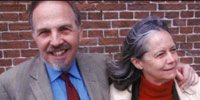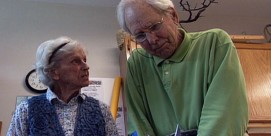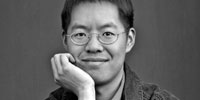DR. ATUL GAWANDE: An illness is a story for people. It's a chapter in their life. It may be in some cases we're talking about the last chapter in their life, and that story of what happens is how we think, it's how we breathe, it's how we live our whole life.
I don't think it takes a family member facing a terminal illness to recognize that we're not handling these problems very well. Everybody has a different set of priorities besides just living longer and they really matter in their lives and they want us to serve them. The most reliable way to find out what people's priorities are is just to ask. And we don't ask. There is the anxiety of the doctor, or any clinician—doctor, nurse—about being able to talk about these issues. I could go to the operating room and I could come out and we will have fixed a problem and that's incredibly gratifying. When it's an unfixable problem, where they are…you're dealing with someone who's frailty is just getting worse, their chronic illness is not getting better, they're terminally ill and you're not changing that trajectory, well, that is where you feel really incompetent. We haven't had the skills to handle those situations.
One study of cancer patients, for example, less than a third had any kind of a discussion about their goals and priorities for the end of their life. The people who had that discussion had remarkably better outcomes in terms of spending more time at home, having less suffering in the course of their care, being able to avoid dying in the hospital or in the intensive care unit if they didn't want to, their family members had less depression and post-traumatic stress disorder six months after the person died.
Our core values are that the priorities are health and survival. When you start saying that people have priorities besides just survival—in fact, well-being for people is bigger than just surviving and being a pulsing organism that's kept alive—then you realize that we're going to need to change from a very narrow medical viewpoint to a larger viewpoint.
For my father, and I'd say for both of my parents, their Hindu faith was really important to them, especially my father, as he faced what he knew was going to be his death. People in medicine underestimate how important religion is to people. In the top three priorities that people name, being at peace with God as they face the end of life is really important to them. And much farther down on the list is living as long as possible no matter what.
(reading excerpt from book): "Floating on that swollen Ganges River, I could not help sensing the hands of the many generations connected across time. In bringing us there, my father had helped us see that he was part of a story going back thousands of years, and so were we. We were lucky to get to hear him tell us his wishes and say his goodbyes. And having a chance to do so, he let us know he was at peace—that let us be at peace too. After spreading my father's ashes, we floated silently for a while letting the current take us. As the sun burned away the mist, it began warming our bones. Then we gave a signal to the boatman and he picked up his oars. We headed back toward the shore."







